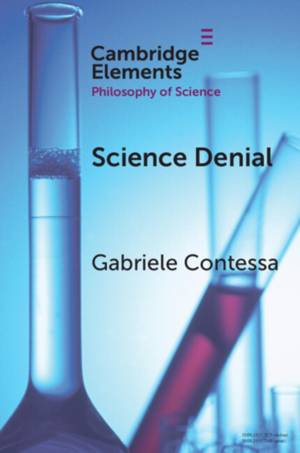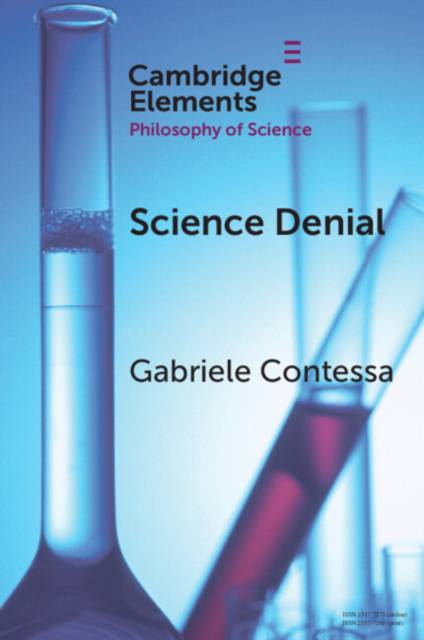
- Afhalen na 1 uur in een winkel met voorraad
- Gratis thuislevering in België vanaf € 30
- Ruim aanbod met 7 miljoen producten
- Afhalen na 1 uur in een winkel met voorraad
- Gratis thuislevering in België vanaf € 30
- Ruim aanbod met 7 miljoen producten
Zoeken
Omschrijving
Over the last couple of decades, there has been increasing concern about the alleged rise of various forms of science denial. But what exactly is science denial? Is it really on the rise? If so, what explains its rise? And what is so concerning about it? This Element argues that the notion of science denial is highly ambiguous and that, once we carefully distinguish among all the different phenomena that are often conflated under this label, it is doubtful that any of them warrants all of the concerns that animate the critics of science denial. This has important consequences for how we understand the complex and delicate relationship between science and the public and, more generally, the collective epistemic malaise afflicting liberal democracies.
Specificaties
Betrokkenen
- Auteur(s):
- Uitgeverij:
Inhoud
- Aantal bladzijden:
- 84
- Taal:
- Engels
- Reeks:
Eigenschappen
- Productcode (EAN):
- 9781009625296
- Verschijningsdatum:
- 20/11/2025
- Uitvoering:
- Paperback
- Formaat:
- Trade paperback (VS)
- Afmetingen:
- 152 mm x 229 mm
- Gewicht:
- 122 g

Alleen bij Standaard Boekhandel
+ 48 punten op je klantenkaart van Standaard Boekhandel
Beoordelingen
We publiceren alleen reviews die voldoen aan de voorwaarden voor reviews. Bekijk onze voorwaarden voor reviews.







